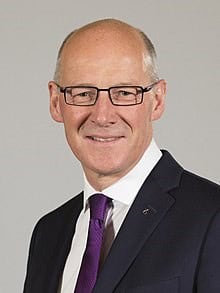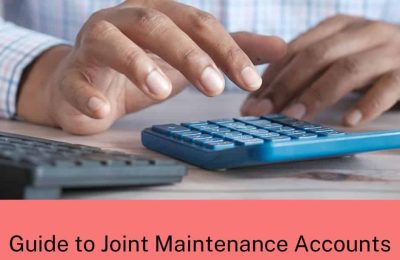Ahead of the Scottish Budget on 4th December 2024, Propertymark has urged the Scottish Government to start incentivising investment in the private rental sector.
Following the appointment of John Swinney as Scotland’s First Minister on 7th May 2024, the professional body called on the Scottish Government to tackle Scotland’s housing emergency by reviewing all costs and taxes affecting private landlords.
Propertymark has stressed that the Cost of Living (Tenant Protection) (Scotland) Act 2022 and subsequent extensions have discouraged future landlords from joining the market and is forcing current landlords to sell up, which is widening the gap between supply and demand.

John Swinney, First Minister of Scotland
Propertymark’s report Cost of Living (Tenant Protection) (Scotland): Letting Agent Insight, found that 94 per cent of agents reported an increase in landlords selling property when a tenancy ends, and 93 per cent of landlords stated a wish to withdraw property from the private rental sector because of the extension of cost-of-living measures that year. The report also showed the opposite desired effect as 94 per cent of landlords were reported to be more willing to raise rents due to these measures.
One of the taxes that affects many landlords in Scotland includes the Land and Buildings Transaction Tax on an extra property worth £185,000, which would result in a tax bill of £11,900 for a buy-to-let investor based on average property prices in Scotland, with a main resident only paying £800. On 16th December 2022, the Scottish Government raised the Land and Buildings Transaction Tax to six per cent.
Measures to incentivise landlords
Propertymark has also argued that the Scottish Government should drop the six per cent Additional Dwelling Supplement on purchases of buy-to-let properties to help bring down the cost of buying a second home and spur on investment. These measures, Propertymark argues, would incentivise landlords to invest in the private rented sector.
They also stressed that the Scottish Government needs to build more social houses to boost supply and give people more choice when it comes to renting. This would prevent renters on the lowest incomes being forced to live in properties that they cannot afford.
While announcing the Scottish Government’s Programme for Government on 4th September 2024, the Scottish First Minister announced that they will continue with the Housing (Scotland) Bill which includes measures for local councils to provide information on rents in their area alongside recommendations to designate all or any part of the area for rent control if necessary.
Although the Programme for Government contained many measures Propertymark welcomes, such as £600 million being ring-fenced for affordable housing, £40 million being invested for proposals to repurpose empty properties (like amendments to compulsory purchase rules), and a commitment to construct 2,800 mid-market rent homes with funding of £100 million, they warned that any benefits will be undermined by permanent rent controls.
Also, the Scottish Government will be restricted by budget constraints by the time the Budget is officially announced in December 2024, which is why the professional body believes Mr Swinney needs to attract investment into the private rental sector instead of enforcing rent controls.
This is an issue that Propertymark has been campaigning on for some time, as the cost-of-living measures, initially established as an emergency response due to the ongoing cost of living crisis, continued to be extended and have now formed the basis of potential long-term rent controls in Scotland. In April 2023, the Scottish Government implemented a higher rental cap of 3 per cent that lasted until September 2023, only to be extended until 31st March 2024.
Propertymark concerned that the housing crisis will continue into the indefinite future
While the Scottish Government continues to pursue rent control measures to resolve rising rent increases, Propertymark and its members have urged the Scottish Government to consider the impact of the cost of living on landlords as well. Propertymark members in Scotland have reported that some landlords experienced as much as a 270% increase in mortgage costs during this period. Furthermore, 69 per cent of agents said in November 2022 that they had witnessed an increase in notices to sell, but by May 2023, this number jumped to a stunning 97 per cent. This is due to how rising mortgage rates are making it difficult for landlords to make a profit on their rental properties, especially considering they cannot increase rent charges to compensate.
According to CityLets’ own Q3 2024 data for Scotland, a 1 bed property costs £846 per month to rent on average, which represents a 9.3 per cent increase in one year. Rent for a 4-bedroom property also increased by 9.3 per cent in one year and now costs £2,299 per month to rent. A 2 bed and 3 bed property now costs £1,133 per month and £1,532 per month respectively to rent, both representing 7.6 and 6.9 rental increases since last year respectively.
Without measures to reduce the costs for landlords to purchase new properties and maintain existing homes, Propertymark is concerned that the housing crisis will continue into the indefinite future.
Timothy Douglas, Head of Policy and Campaigns at Propertymark, said:
“The Scottish Government has an opportunity to finally start resolving the country’s housing crisis when they announce their Budget for the 2025/26 fiscal year in December. The reality on the ground is that renting property is becoming increasingly unaffordable for landlords who risk leaving the sector with no incentives for new investors to ensure these properties remain in the private rented sector. Instead of focusing on rent controls, they need to realise that the private rental sector can help solve homelessness and boost the supply of Scottish homes that are urgently needed. Propertymark urges them to implement tax reforms that will attract investment in Scotland’s housing market before this problem continues to escalate out of control.”










